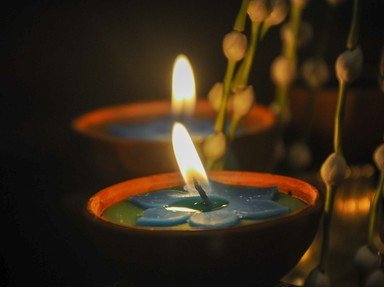Quiz Answer Key and Fun Facts
1. There are six days of fasting universally observed in Judaism. What are the two major fast days?
2. In the United States as of 1966, what are the two major fast days in Roman Catholicism?
3. In the United States as of 1966, what is the most that Roman Catholics can eat on a fast day according to Canon Law?
4. In Islam, fasting is performed from sunrise to sunset for what month?
5. One of the greatest obligations in the Bahá'í Faith is a month long dawn-to-dusk fast during the month of 'Ala. What is this fast called?
6. Is fasting practiced by most Buddhists?
7. Mormons, members of the Church of Jesus Christ of Latter-day Saints, participate in a fast one day each month. This fast was originally on the first Thursday, but in 1896 was changed to what day?
8. Is fasting practiced by most Hindus?
9. Fasting is an important part of Eastern Orthodoxy and Greek-Catholicism. Which of the following is NOT a day of fasting?
10. Is fasting practiced by most Sikhs?
Source: Author
jcpetersen
This quiz was reviewed by FunTrivia editor
LeoDaVinci before going online.
Any errors found in FunTrivia content are routinely corrected through our feedback system.

